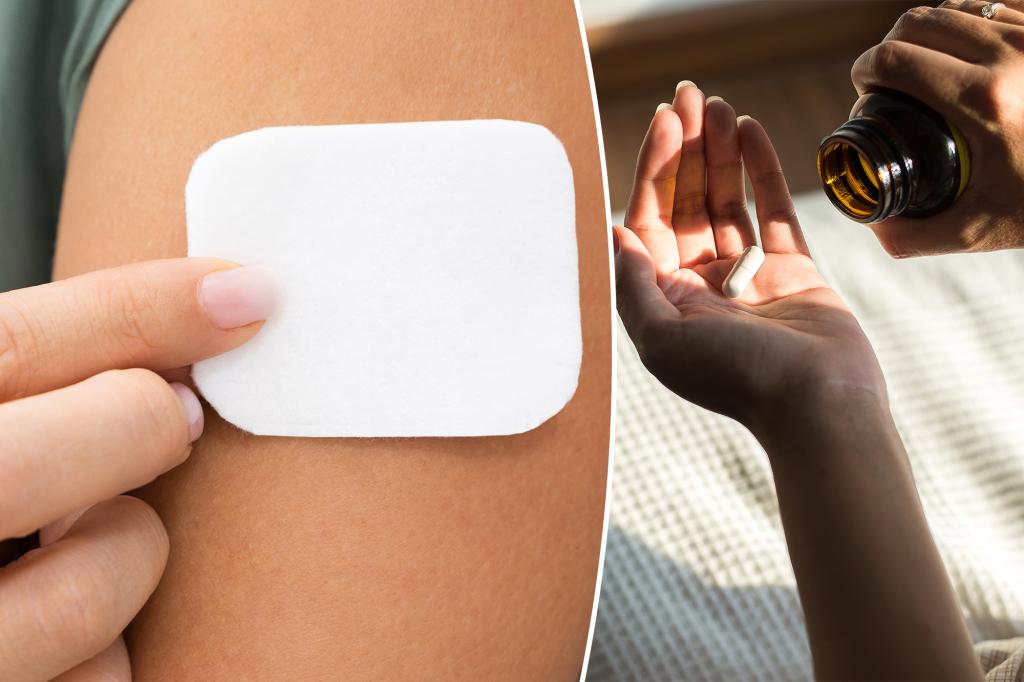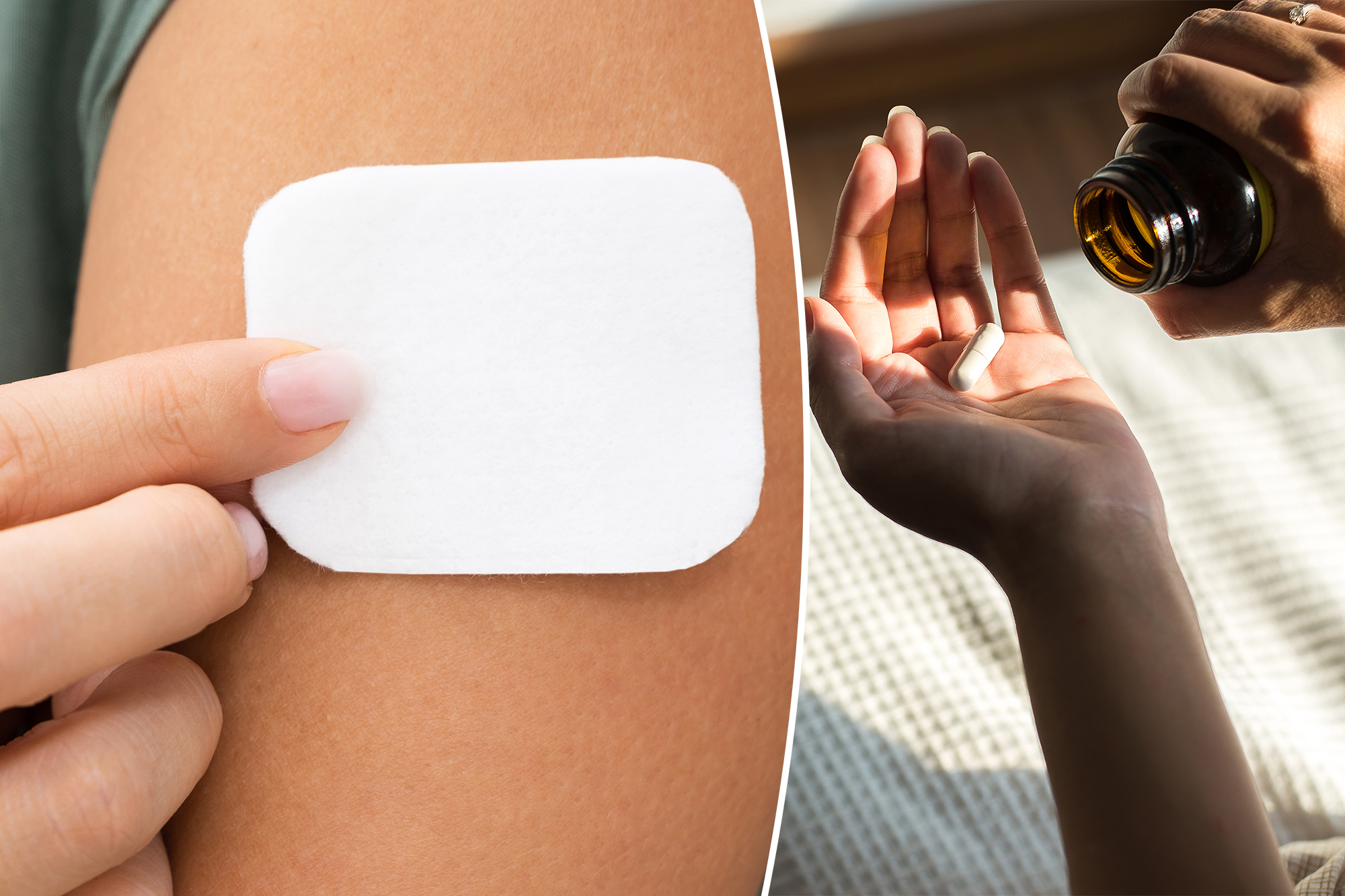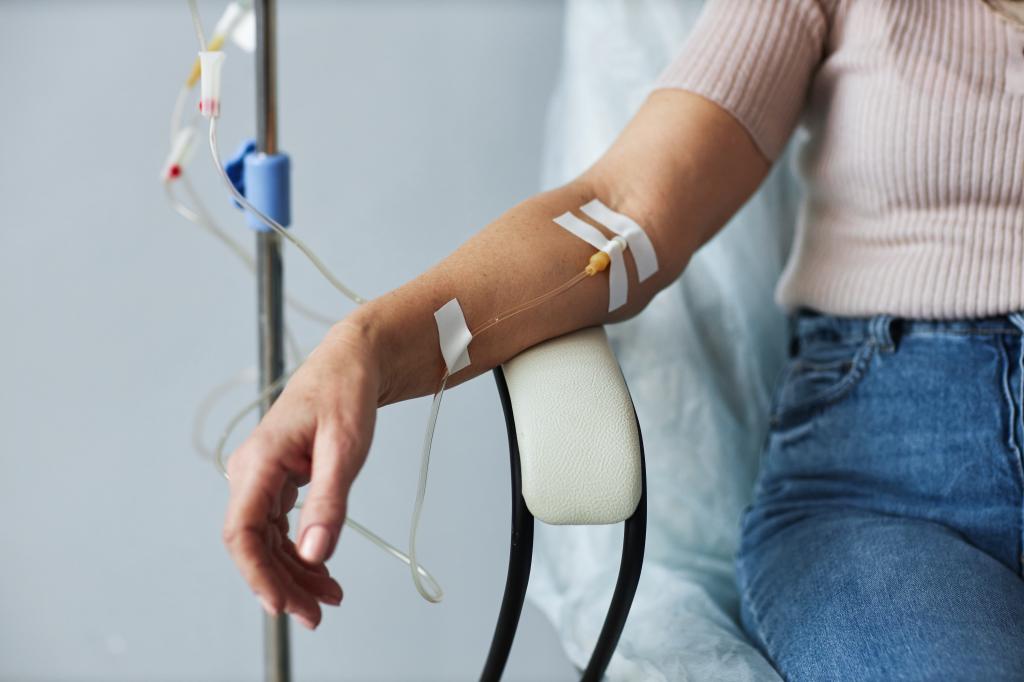Trendy vitamin patches offer a new way to get nutrients – but do they really work?


Just what the doctor ordered?
Vitamin tablets are designed to deliver nutrients into the bloodstream through the skin – they’ve become all the rage among people who can’t swallow pills, forget to take them or have digestive issues.
A market research firm predicted that the global vitamin industry will grow from $6.6 billion to $10.4 billion over the next decade, although some medical experts have offered mixed reviews of their effectiveness.
“They are not as good as taking vitamins by mouth, however, if you are not going to be able to take vitamins by mouth … a patch is better than nothing,” said Dr. Michael Russo, a bariatric and cosmetic surgeon based in California, said earlier this year. “You’ll have less of that vitamin hitting your bloodstream.”
Brands like PatchMD, PatchAid, Nutri-Patch, Barrière and The Good Patch are selling skin patches that are said to provide everything from vitamin D to B12 to multivitamins and magnesium. Some are fashion shows.
“We wanted to create a product that people actually wanted to wear and that would inject some joy into their daily wellness routine,” Barrière co-founder Cleo Davis-Urman told Marie Claire this week. “A glimmer of gold on the arm, a touch of lace on the wrist, a bold astrological sign on the neck… our designs [are meant to] you look beautiful in the skin.”
Transdermal patches — adhesives placed on the skin to deliver medication — have been around for decades even though they haven’t been all that fashionable.
Nicotine patches help people quit smoking, while estradiol patches can ease menopausal symptoms. Scopolamine patches may prevent nausea and vomiting BY motion sickness, anesthesia or surgery, and birth control patches are intended to prevent pregnancy.
Research studies on vitamin patches have produced conflicting results, with a 2021 scientific review of the patches noting that some micronutrients may not penetrate the skin in sufficient quantities.
“To increase efficacy, patches are often placed in strategic areas where venous areas are condensed, such as the inner wrist, so that they are absorbed more quickly,” said Dr. Marisol Saavedra, an aesthetic doctor in London and co-founder of IV therapy company Tonic, explained to Marie Claire.
Some consumers are simply not convinced. While one TikTok user called her B12 patches “awesome,” a functional medicine expert described his experience as a “nightmare.”
“Based on my micronutrient test, which I did before and after trying the patch, I didn’t see any difference,” Sam Tejada, CEO and founder of Liquivida Wellness Center, told Verywell Health this month.
“The patch uses an adhesive that can be extremely toxic to the skin, and you can absorb those toxins,” he continued, without disclosing the type and brand of patch he tried. “I had a very bad reaction and had to seek medical treatment from a local dermatologist, ending up with what is called contact dermatitis.”
The vitamin trend comes as many Americans don’t get enough of key nutrients, such as vitamins D and E, even though most report getting enough in their diets.
A 2023 survey by the Council for Responsible Nutrition (CRN) determined that 74% of American adults take supplements, with 55% describing themselves as “regular users.”
Dietary supplements don’t face the same strict government oversight as drugs — and some critics say vitamin chips shouldn’t even be considered supplements.
“Vitamin supplements are illegal drugs, not dietary supplements. A dietary supplement should be taken orally; it cannot be absorbed through the skin,” Jeff Ventura, CRN’s vice president of communications, told Verywell Health. “The FDA certainly has the authority to regulate drugs. There are many warning letters associated with non-oral products being mislabeled as supplements.
If you decide to try a vitamin patch, you should consult a doctor, especially if you’ve had surgery, are taking medication, or have a medical condition.
#Trendy #vitamin #patches #offer #nutrients #work
Image Source : nypost.com





